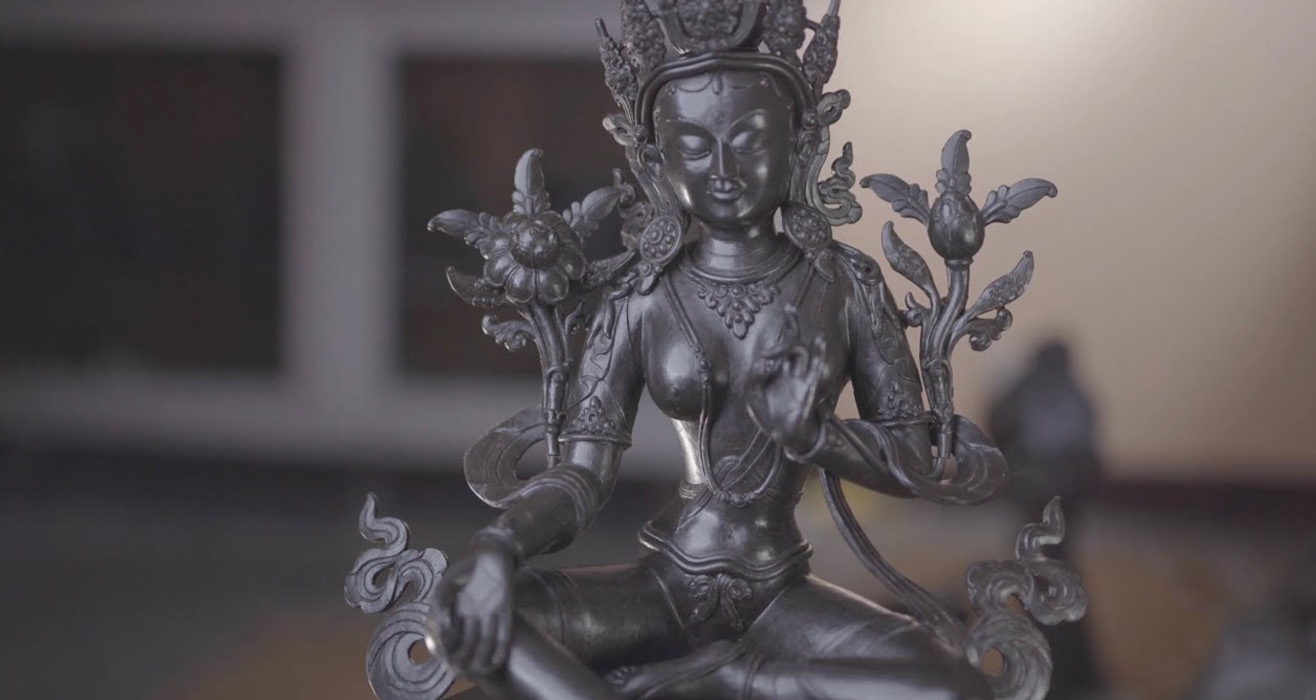


The lost-wax technique of hollow metal casting, perfected by Newar artists of the Kathmandu Valley, has remained a thriving practice from ancient times to the present day. Learn about the elaborate process from the artisans at Foundry Foundation Nepal.
This video is featured on Project Himalayan Art—a digital platform to discover the world of Himalayan art, with 108 object-focused essays, multimedia resources, an interactive map, and more.
Learn more about art-making practices from the Himalayan and Tibetan regions, including lost-wax metal casting, on Project Himalayan Art:
Leadership support for Project Himalayan Art is provided by the Henry Luce Foundation.
Project Himalayan Art has been made possible in part by a major grant from The National Endowment for the Humanities: Democracy demands wisdom.
This project was made possible in part by the Institute of Museum and Library Services MA-253379-OMS-23.
This project is supported in part by the National Endowment for the Arts.
Lead support is provided by the Ellen Bayard Weedon Foundation, Bob and Lois Baylis, Barbara Bowman, the E. Rhodes & Leona B. Carpenter Foundation, Noah P. Dorsky, Fred Eychaner, Christopher J. Fussner, the Estate of Lisina M. Hoch, Lilly Endowment, Matt and Ann Nimetz, The Randleigh Foundation Trust, Shelley and Donald Rubin, and Jesse Smith and Annice Kenan.
Major support is provided by Daphne Hoch Cunningham and John Cunningham, Stephen and Sharon Davies, the Edward & Elizabeth Gardner Foundation, Mimi Gardner Gates, Hongwei Li, Max Meehan, the Monimos Foundation, Edward O’Neill, The Prospect Hill Foundation, Sarah and Craig Richardson, Rossi & Rossi, Basha Frost Rubin and Scott Grinsell, the Andrew Sabin Family Foundation, Namita and Arun Saraf, Eric and Alexandra Schoenberg, Eileen Caulfield Schwab, UOVO, Sandy Song Yan, and the Zhiguan Museum of Art.
Special support is provided by:
Dr. Bibhakar Sunder Shakya, to honor the memory and legacy of Professor Dina Bangdel, art historian, curator, cultural activist, and educator from Nepal.
Samphe and Tenzin Lhalungpa, to honor the memory and works of L. P. Lhalungpa, Tibetan scholar, broadcaster, and educator.
Any views, findings, conclusions, or recommendations expressed in this initiative do not necessarily represent those of the National Endowment for the Humanities.
The views, findings, conclusions or recommendations expressed in this project do not necessarily represent those of the Institute of Museum and Library Services.
Get the latest news and stories from the Rubin, plus occasional information on how to support our work.